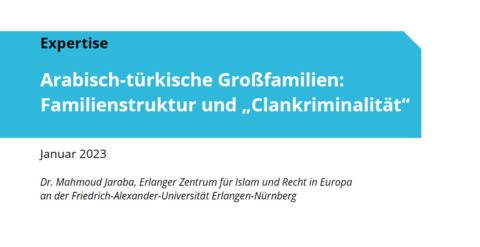Mahmoud Jaraba on “criminal clans” and family structures
For years, Arab-Turkish extended families have been at the centre of political and media debates. The families are often described as “criminal clans”. Dr Mahmoud Jaraba has been researching the topic for several years. In a new expertise for Mediendienst Integration, he examines how the structures of extended families have developed and in which structural contexts crime takes place.
The most important findings are:
- the formerly close relationships of extended families have differentiated over the decades. Today, most family members do not know each other, and there is no central leader.
- crime is not organised within the extended family, but within “sub-sub-clans.” At this level, there are strong feelings of solidarity and loyalty, as members of these smaller groups are bound by an informal code of conduct.
- only a few members of the extended families are criminals, but they receive a disproportionate amount of attention from the media and politics and often actively seek it.
- in Germany, family members experience a lot of exclusion and considerable discrimination in everyday life—at school, on the job, and the housing market, and by the police.
You can find the expertise here (in German)
